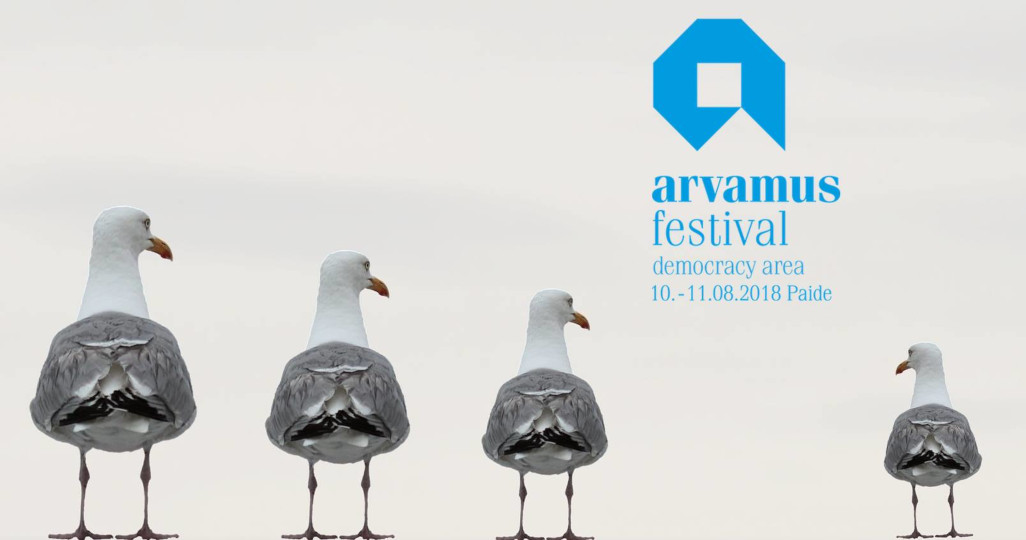10.08.18 – 11.08.18
Opinion festival 2018: democracy area Finished


This year’s Opinion Festival, which is being held in Paide on 10 & 11 August, will be home for the first time to a Democracy area, where we will be inviting people to talk on the topic of what each of us can do for the good of democracy. Are the Nordic countries still an example to Estonia? How can we make the transition from cowboy capitalism to values-based entrepreneurship? Who, and what, is the European Capital of Culture needed for? These are the discussions we will be having, hearing the experiences of both the Nordic countries and Estonia. The Democracy stage is being supported and organised by the Nordic Council of Ministers’ Office in Estonia, while the programme of debates is being held with the assistance of our partners: the Open Estonia Foundation, the Estonian Atlantic Treaty Association, the Estonian Foreign Policy Institute and pro-active citizen Karl Toomet.
Democracy is like the air we breathe: we tend to remain unaware of it in our day-to-day lives, but as soon as it is removed we are all gradually paralysed by it. Today democracy is no longer defined purely in classical terms of majority rule, but as a defender of freedoms and values. It can only remain viable and continue to develop if the freedom of the media and of expression and the independence of the courts and civic society are defended.
According to the 2017 Democracy Index, four of the five most democratic countries in the world are in the Nordic region (Norway, Iceland, Sweden and Denmark). A high level of trust is characteristic of Nordic societies, and democracy in the Nordic countries has historically been influenced to a great extent by civic movements – those of blue-collar workers, farmers, feminists and more. A thriving culture of debate and freedom of speech guarantee a sense of security: people can express their opinions freely. Grassroots perspectives being taken into account by the state and support for values that strike a balance between work and private life have helped to raise the level of political trust among citizens. At the same time, surveys have shown that political trust also increases the likelihood that citizens will pay their taxes – so that it is possible to implement the things that are truly important to people. In all of this, activity among citizens remains critical. Who will defend democracy that values freedoms if not ourselves, and how can each of us contribute to its defence?
Classical representative democracy, in which people vote in elections, is no longer enough. The occasion of Estonia’s centenary is a welcome – and timely – juncture at which to recall the words of President Lennart Meri, who said that democracy, in its exactingness, must undergo a rebirth every single day. Or as Mads Randbøll Wolf, one of the people behind the network of democracy festivals, has said: “We have been reduced to consumers while we should have been citizens. We need to work on democracy as a state of mind.”
On the Democracy area at the Opinion Festival we will be working together to look for opportunities and specific ways of renewing governance culture and what it means to be a citizen.
Over two days there will be seven debates (three in Estonian and four in English) as follows:
Friday 10 August
- 12:00-13:30 The Rise of Populism in Europe: Bringing Balance to Democracy or Threatening Its Existence? (in Estonian)
- 14:00-15:30 Are the Nordic Countries Still a Role Model for Estonians?
- 16:00-17:30 From Cowboy Capitalism to Values-based Entrepreneurship
- 18:00-19:30 Who is Still Defending Democracy in the World? (in Estonian)
Saturday 11 August
- 12:00-13:30 Sailing on the Post-truth Media Sea: How to Consume Media Critically (in Estonian)
- 14:00-15:30 Civil Society in Europe – Who Should Be Mobilised, Why and How?
- 16:00-17:30 European Capital of Culture 2024 – Who for and Why?
The Democracy area is one of the Nordic Council of Ministers’ Office in Estonia’s gifts to the country on the occasion of its centenary.